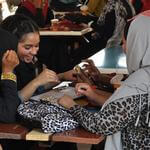The social uses of livestock among pastoralists in Sudan: Food systems, stores of value, wealth, power, and authority
How to cite this publication:
Abdel Ghaffar M. Ahmed (2014). The social uses of livestock among pastoralists in Sudan: Food systems, stores of value, wealth, power, and authority. Bergen: Chr. Michelsen Institute (CMI Sudan Working Paper SWP 2014:2)
The impact of livestock on the economy of Sudan and its social uses within the pastoral sector are of great importance in the future development of the country. The role of livestock is that of a food system and store of value, wealth, power, and authority in areas where pastoralists practice their daily life without being reached by modern banking systems and market economy. There are four major uses of livestock in Sudan; namely, domestic, economic, social, and political. A key aspect of the issue is the social significance of livestock and how the wealth it generates transforms itself with power and authority. Indigenous knowledge in land management as well as the pastoralists’ use of different types of animals to satisfy their short- and long-term needs has to be understood in order to effectively implement any strategic planning. Elements that should be considered are the impact of drought in the marginal areas of the northern part of the country, land grabbing in the central areas, and civil war in the southern region, specifically focusing on the contribution of the livestock sector to the Gross Domestic Product (GDP) under the pressure of the shrinking grazing areas. A brief attempt is made toward explaining issues of edification of pastoralists in order to transform the system. An advance in this direction can only come through education and creation of awareness towards the relevance of high quality livestock for the local, regional, and national economies of the state. This calls for creative engagement in processes of planning and developing the pastoral sector.




